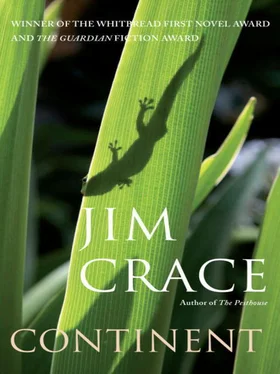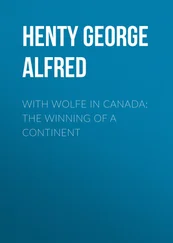The men indulged him. He was still a stranger, they reasoned, and starved of company, missing home. He would quieten down once he had a glass in his hand. But they had been wrong. He became louder with every sip. He spoke in a voice which sent the women back into their homes, which sent the men early to bed. The voice said, My sadness is stronger than your drink. Nothing can relieve it. Nothing. A trace of tin. Nothing.
He daydreamed: a lifetime of finding nothing. He dreamed of prospecting the night sky and locating a planet of diamonds or an old, cooled sun of solid gold. But then the company had no need for diamonds or gold. Find us sand, they instructed. Find us brown mud. Send us a palmful of pebbles. He dreamed again, and produced a twist of earth and stone which contained new colours, a seam of creamy nougat in a funnel of tar. His dream delivered the funnel to his company offices. Soon secretaries typed Ibela-hoy for the first time — and a name was coined for the new mineral which he had unearthed. Then his dream transported friends and family to Ibela-hoy. They walked behind him as he set out to map the creamy seam. Together they charted an area the shape of a toadstool. A toadstool of the newest mineral in the world. His daydream provided a telephone and a line of poles. He telephoned the company with the good news. They referred him to the Agency and then to the Ministry. His calls were bounced and routed between switchboards and operators and his story retold a dozen times — but nobody was found with sufficient authority to accept such momentous information or to order his return to home, to sleep.
Send me a dream, he said aloud, in which my wife and my children are brought to the cabin. When I wake, they are there. When I sleep, they are there. We sit at the same table. The two boys tumble on the bed. The baby stands on my thighs with crescent legs and tugs at my nose and hair. My wife and I sit together slicing vegetables at the table. But when he had finished speaking there was no reply from amongst the rocks, no promises. He spoke again, in whispers. Have pity, he said.
Sometimes he wrapped his arms round boulders, warmed by the sun, and embraced them. My wife, he said. He kissed boulders.
Now the men kept their distance. They were polite but no longer generous. There were no more invitations to visit the lumber station — and they became watchful on those occasions when they brought drill cores to the cabin. Does this man know his business? they asked amongst themselves. Can he be trusted to know marl from marble? They waited awkwardly at his door or stood at his window as their plugs of earth were spread and sorted on his bench, the soils washed and sieved, the stones stunned and cracked, the unusual flakes of rocks matched with the specimens in the mineral trays. His fatigue — the second stage — had hardened his concentration. He was engrossed. He lowered his head and smelled the soil. He sucked the roundest pebbles. He rubbed stones on the thighs of his trousers and held them to the light. No, nothing, he told them. But when they sat in their camps and looked up from the valley late at night, a light still burned in the agent’s cabin and they could see him holding their stones to his oil flame and talking to their earth in his skinned and weary voice.
At first the sorted, worthless plugs were dumped each day in a rough pile at the side of the cabin. The clays of the valley consorted with the volcanic earths of Ibela-hoy. Flints jostled sandstones, topsoils ran loose amongst clods, the rounded pebbles of the river bed bubbled in the wasteland shales. He was struck how — held and turned in the daylight — each stone was a landscape. Here was a planet, a globe, with the continents grey and peninsular, the seas cold and smooth to the touch. And here a coastline, one face the beach, four faces cliff, and a rivulet of green where the children and donkeys could make their descent. And here, twisted and smoothed by the survey drill, were the muddied banks of rivers and the barks of trees modelled and reduced in deep, toffee earth. But in the dump, their shapes and colours clashed and were indecent. He remembered how, when he was a child, they had buried his father. The grave was open when the body came. There were clays and flints piled on the yellow grass. The bottom of his father’s trench had filled with water. The digger’s spade had severed stones. They said that in ancient times, when humankind went naked and twigged for termites and ate raw meat, the dead were left where they fell. What the animals did not eat became topsoil, loam. The company agent had wished for that, had dreamed of his father free of his grave and spread out on the unbroken ground as calm and breathless as frost. But he could not look at that open grave, those wounded flints, without tears. He could not look at roadworks, either. Or a ploughed field. Or a broken wall. And whenever he had stared at that squinting corner of his room where the ceiling plaster had fallen and the broken roof laths stuck through, his chest (what was the phrase?) shivered like a parched pea and he dared not sleep. The ceiling doesn’t leak, his mother said. It’s you that leaks, not it.
Now he wept when he passed the waste pile, when he was drawn at night to stand before it with a lamp or summoned to salvage one lonely stone for his pocket or his table. Sometimes it seemed that the pile was an open wound or an abattoir of stones. But the longer he stood the more it seemed that a piece of the world had been misplaced and abandoned at his cabin side.
Then he took a spade and dug a pit behind the waste pile. First he gathered the chipped yellow stones which lay on the surface and placed them together in a bucket. And then he removed the thin soil crust and piled it neatly onto a tarpaulin. Each individual layer was dug out and piled separately, until the pit was shoulder deep. The continents and planets, the landscapes and coastlines of the waste dump were shovelled into the pit and one by one, in order, the layers of Ibela-hoy were put back in place. Then he scattered the chipped yellow stones on to the bulging ground.
When the gangs delivered drill cores they noticed that the waste had gone. I buried it, he said. I put it back. He showed them where the swollen ground was settling. Well, they said, that’s very neat and tidy. Or, Is that what you’re paid to do, fool about with spades? His replies made no sense to them. They continued to talk with him roughly or to humour him with banter. What should we do for him, they asked amongst themselves, to bring him back to earth? Should we write, they wondered, to his wife and children or to the boss? Should we let him be and let the illness pass? Some of the kinder, older men went to talk with him, to offer help, to exchange a word or two about the samples on his bench. Yet he seemed indifferent to them and those funnels of earth and stone which could earn them all a fortune. Was that the yellow of bauxite or the rose of cinnabar or the fire-blue of opal? The company agent did not seem to share their excitement or their interest. But when at last they left him in peace he turned to the samples on his bench and sorted through them with unbroken attention. A stone of apple-green he removed and walked with it into the valley where in a cave there were lichens of the same colour. A fistful of grit he scattered in the grass so that it fell amongst the leaf joints like sleet. A round stone he placed on the river bed with other round stones. A grey landscape in an inch of granite he stood in the shadow of the greyest rock. A chip of pitchblende was reunited with black soil.
Once a month, when his provisions were delivered together with letters from home, the company agent presented his report and sent back to the city any minerals or gemstones which were worthy of note. Once he had found a fragment of platinum in a sample from the plateau beyond the hill. He and the gang waited a month for the company’s response. Low-quality platinum, they said. No use to us. And once he had identified graphite amongst the native carbons. But, again, the company was unimpressed. Now he wrapped a piece of damp clay and placed it in a sample bag. Its colours were the colours of pomegranate skins. Its odour was potatoes. He sealed the bag and sent it to the company. Urgent, he wrote on the label. Smell this! And, in the second month, he sent them a cube of sandstone and wrote: See the landscape, the beach, the pathway through the rocks. And later they received the palmful of pebbles that they had requested in his dream.
Читать дальше












